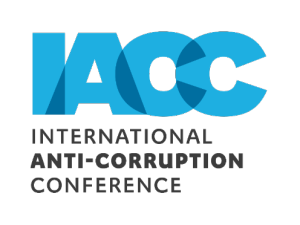Fuente IIPE/ 18 de Abril de 2016
The IIEP hosted a session entitled “Engaging Tomorrow’s Professionals in Leading Anti-Corruption Initiatives”, as part of the 16th International Anti-Corruption Conference (IACC) in Putrajaya, Malaysia. The central theme of the conference, which took place from the 2nd – 4th September 2015, was how impunity enables the spread of corruption.
Khairul Anuar Che Azmi (Head of the Integrity Unit at the Universiti Sains Malaysia (USM), Ronald E. Berenbeim (Senior fellow at The Conference Board), Jorge Eduardo Mori (Higher Education Policy Advisor and Founder of Universidad Coherente) and Edda Müller (Chairperson of Transparency International Germany) participated as experts at the IIEP session and discussed how the global community can encourage tomorrow’s professionals by creating initiatives aimed at fighting impunity for corruption within the education sector. During the session four main anti-corruption initiatives were showcased, focusing on the development and implementation of various tools, ways of measuring risks of corruption at the higher educational level, and the exchange of existing practices.
The first initiative named “Universidad Coherente” comes from Peru. Because of the unexpected negative effects of increased public funds for universities, a web platform, including a university directory, was developed. It allows new generations of young leaders to monitor the performance and financial management of university authorities. The second initiative “Hochschulwatch”, from Germany, promotes transparency as a means to prevent improper influence by industry and commerce by mapping the influence of private funding within universities. The database includes 10.000 connections between corporations and universities and provides information about 350 universities. The third initiative was from the Universiti Sains Malaysia, which came up with a series of proposals at the university level, e.g. the USM Student‘s Integrity Secretariat and the USM Student’s Anti-Corruption Secretariat. USM’s initiatives help to protect staff who make disclosures and increase disciplinary action against staff and students. Finally, a toolkit of the Principles for Responsible Management Education (PRME) was introduced. According to the founder, it was designed to “provide comprehensive anti-corruption guidelines for curriculum change in business schools and management-related academic institutions around the world.” It is aligned with internationally accepted values such as the principles of the United Nations Global Compact.
As a result of the session, the development of an international initiative that would help to identify common educational challenges and enable the exchange of practices to address corruption in higher education was discussed. Such an initiative would aim to promote quality of higher education and the independence of research, which are considered crucial to development and economic prosperity going into the future. The participants of the session all came to an agreement that future leaders need to integrate values of transparency and integrity in order to strengthen the fight of corruption in the context of education.
For more information on the outcomes of the conference, do not hesitate to contact us.






 Users Today : 36
Users Today : 36 Total Users : 35459942
Total Users : 35459942 Views Today : 42
Views Today : 42 Total views : 3418507
Total views : 3418507